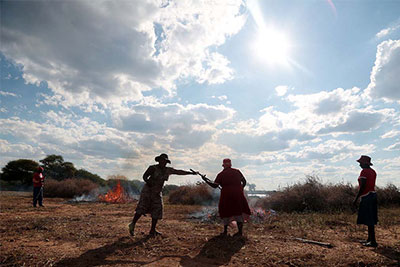
Africa’s development gains continued in the reporting period. The economic growth rate is projected to rise to 4.6 per cent in 2015, up from 3.5 per cent in 2014. With support from the United Nations, progress was made in priority sectors of the New Partnership for Africa’s Development, including infrastructure, agriculture and food security, health, education, science and technology, transport, gender equality and governance. Within the framework of the United Nations monitoring mechanism, the Organization worked to strengthen international support to Africa’s development through a review of implementation of commitments. The first biennial report of the United Nations monitoring mechanism was submitted to the General Assembly at its sixty-ninth session. Through the Regional Coordination Mechanism for Africa and the interdepartmental task force on African affairs, the Organization worked to ensure coherent and better coordinated United Nations system-wide support to Africa.
This past year was notable in several respects, with the end of the Millennium Development Goals and theFramework for the Ten-Year Capacity-Building Programme for the African Union approaching. United Nations support was therefore focused in particular on ensuring that the continent’s priorities as encapsulated in the African Common Position on the post-2015 development agenda and Agenda 2063, the long-term strategic vision for the continent’s development, were taken into consideration in the successor agreements, namely the post-2015 development agenda including the sustainable development goals. The Organization also provided technical support for African countries participating in the Third International Conference on Financing for Development and the upcoming United Nations summit to adopt the post-2015 development agenda.
Despite the persistence of security threats and the impact of climate change in some parts of the continent, some progress was made in addressing election-related threats and in strengthening the nexus between peace, security and development. Given the importance of women’s and girls’ empowerment and leadership in peace, security and development, the United Nations also worked to enhance global visibility and awareness of the African Union’s agendas in this regard, including through a possible continental results framework on women and peace and security in Africa, and 2015 was proclaimed by the African Union as the Year of Women’s Empowerment and Development towards Africa’s Agenda 2063
